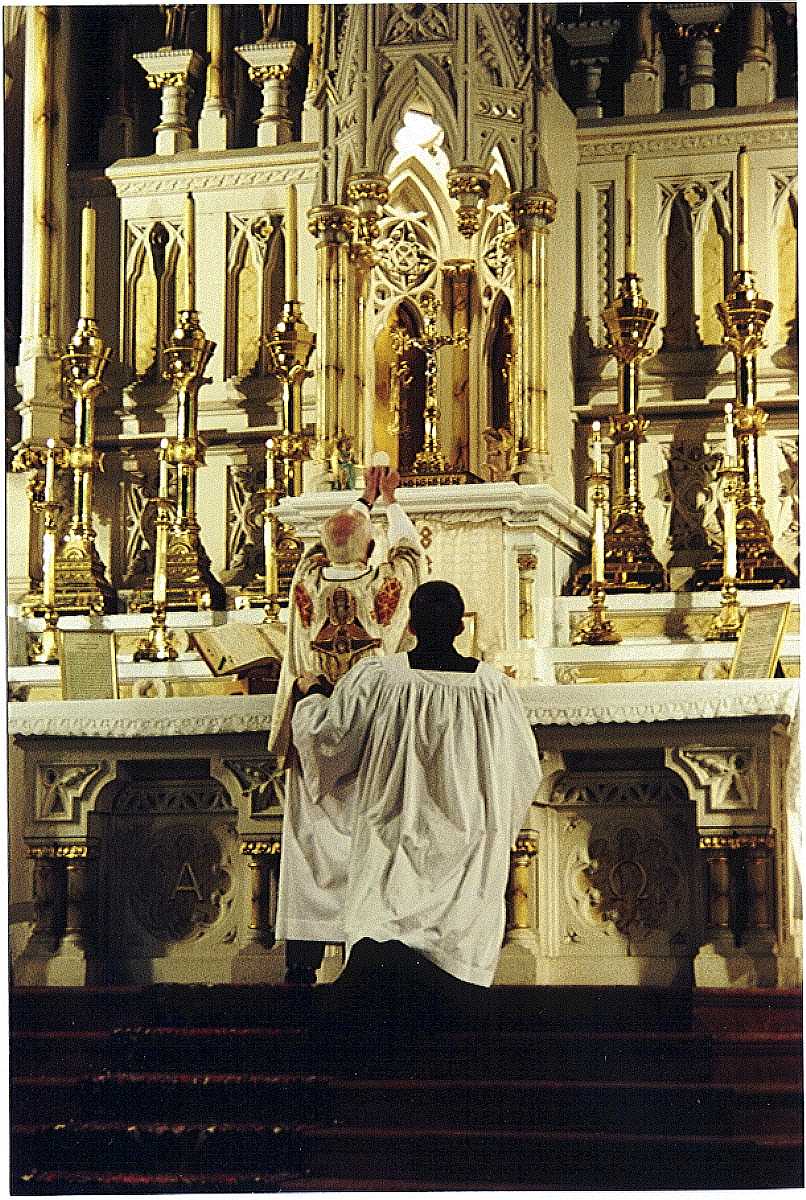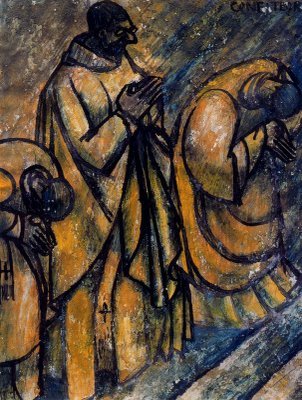It is essential for all Catholics, but most especially for those Catholics who desire a restoration of the Sacred Liturgy in the Western church, to reflect from time to time on the nature--the doctrinal nature--of the Church's worship.
The following comes to us by way of an Anglo-Catholic who in turn comments on a post from a Russian-Orthodox blog. The insight is profound, moving, and very much on target.
A friend recently referred me to an excellent blog with which I had not been previously familiar. It is written by an Orthodox priest, and his insights are astounding. However, unlike most Roman Catholic blogs, the comments sections of his posts are also valuable and full of insight. One such insight sent me reeling a few days ago when I read it:
One of the first times I saw a liturgy was in a Russian church. I didn't understand anything, of course, and at first I was a bit distressed that people came and went, children wandered around, etc. But then I noticed that no matter what anyone was or wasn't doing, the liturgy continued. It was obvious that the audience was God, not the restless congregation. When I returned to my evangelical church, I asked the pastor if he would do the same things he had planned to do this Sunday if no one showed up. He was very struck by that and couldn't answer.
I know what the answer would have been in the pentecostal church of my youth, and I daresay that nearly every Protestant church would have the same answer to that question: dumbstruck silence. Odds are that this question would never have occurred to them. Which is understandable, but regrettable.
In most Protestant worship services, the "worship plan" simply would not work if the congregation did not show up for services. Nearly every element of it is dependent upon the participation, whether active or passive, of those gathered. Worship leaders would have no one to lead. Large, white screens projecting song lyrics that adorn either side of the platform would have no readers. Hymn boards would go unnoticed. No one would "amen," and no one would "testify." No one would listen or scribble notes in the margins of their Bibles during a 50 minute sermon. When the invitation was given, no one would respond.
Liturgical Catholic worship, the greatest expression of which is the Mass (or the Divine Liturgy, Holy Eucharist, whatever you wish to call it based on your tradition), is different, or at least it should be different. No one could show up but the priest, and yet the worship could, and should, happen anyway. And not only should it happen, but anyone who could not make it for some unforeseeable reason could, in faith, unite themselves spiritually with that worship no matter where they happened to be, because they knew the "game plan" well in advance.
However, we as Catholic worshippers must be careful not to fall into the same trap. Innovations which seek to elevate the worshipper over the Worshipped must not be permitted to enter the liturgy. Our focus should never be on ourselves. We enter our holy houses to be in the presence of One who far surpasses our ability to understand. We gather to worship and sacrifice; as a community, to be sure, but community is not the end. (This is why I emphatically advocate worship ad dominum at the Altar, instead of the precarious orientation that many churches have adopted during the last century.) It takes a little more doing, but it is possible for Catholic worship leaders to come up with the same response as their Protestant counterparts when asked the question of the day: dumbstruck silence.
Smug smiles and pats on the back should be shelved for a moment by "traditionalists," many of whom might think that this question doesn't apply to them. It does. The circumstances can become a bit trickier, but it is still a danger that even traditional Catholic worship can be turned from its purpose: worship. I dare not attempt a list of possibilities lest I begin a comments war that rivals those of a Minnesotan birdwatcher. Use your thinkers.
Would your corporate worship work if no one showed up? I pray yes.
Pax et bonum.


